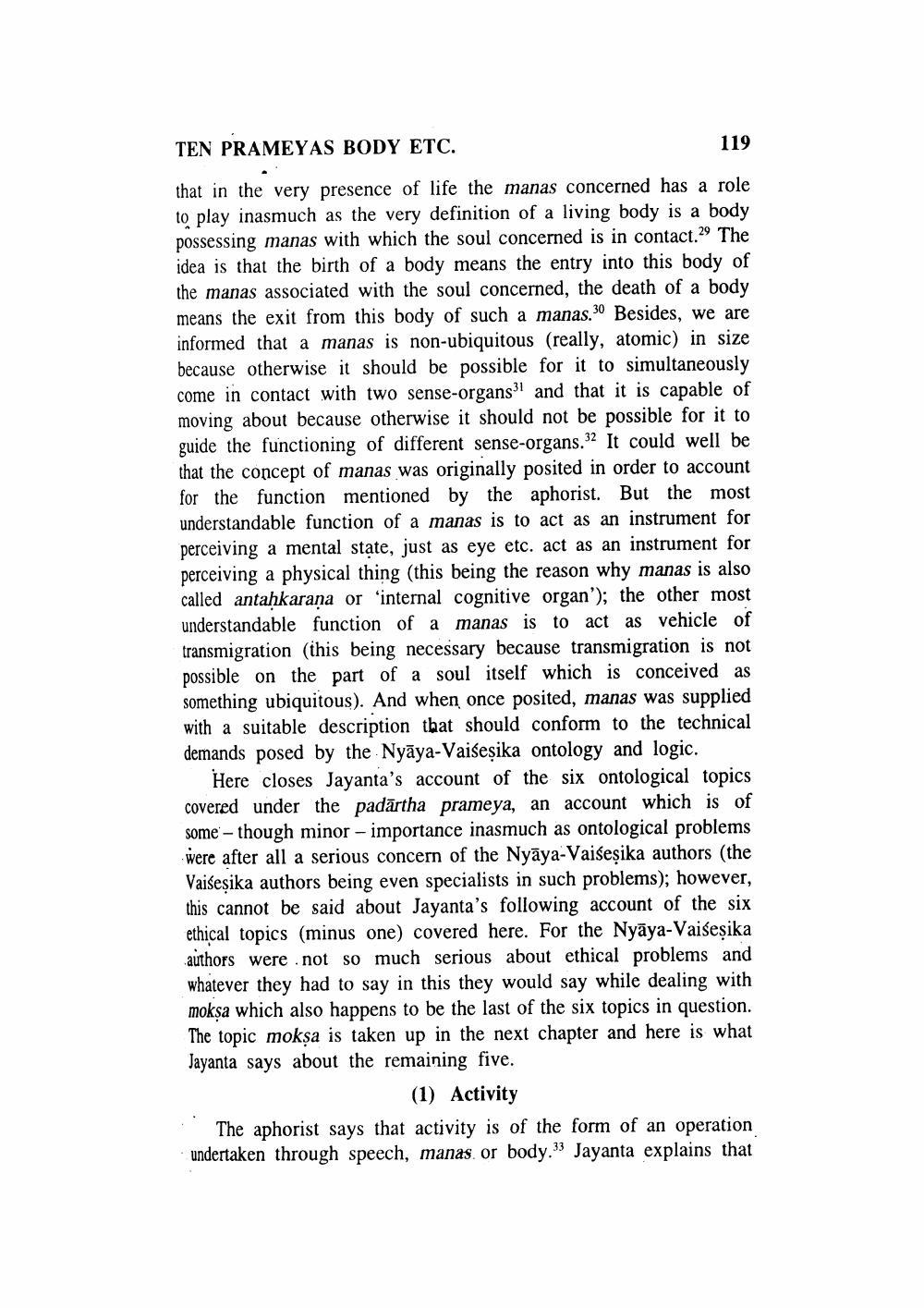________________
TEN PRAMEYAS BODY ETC.
119
30
that in the very presence of life the manas concerned has a role to play inasmuch as the very definition of a living body is a body possessing manas with which the soul concerned is in contact." The idea is that the birth of a body means the entry into this body of the manas associated with the soul concerned, the death of a body means the exit from this body of such a manas. Besides, we are informed that a manas is non-ubiquitous (really, atomic) in size because otherwise it should be possible for it to simultaneously come in contact with two sense-organs and that it is capable of moving about because otherwise it should not be possible for it to guide the functioning of different sense-organs." It could well be that the concept of manas was originally posited in order to account for the function mentioned by the aphorist. But the most understandable function of a manas is to act as an instrument for perceiving a mental state, just as eye etc. act as an instrument for perceiving a physical thing (this being the reason why manas is also called antahkarana or 'internal cognitive organ'); the other most understandable function of a manas is to act as vehicle of transmigration (this being necessary because transmigration is not possible on the part of a soul itself which is conceived as something ubiquitous). And when once posited, manas was supplied with a suitable description that should conform to the technical demands posed by the Nyaya-Vaiseșika ontology and logic.
Here closes Jayanta's account of the six ontological topics covered under the padartha prameya, an account which is of some though minor - importance inasmuch as ontological problems were after all a serious concern of the Nyaya-Vaiseșika authors (the Vaiseșika authors being even specialists in such problems); however, this cannot be said about Jayanta's following account of the six ethical topics (minus one) covered here. For the Nyaya-Vaiseṣika authors were not so much serious about ethical problems and whatever they had to say in this they would say while dealing with moksa which also happens to be the last of the six topics in question. The topic mokṣa is taken up in the next chapter and here is what Jayanta says about the remaining five.
(1) Activity
The aphorist says that activity is of the form of an operation. undertaken through speech, manas. or body." Jayanta explains that




